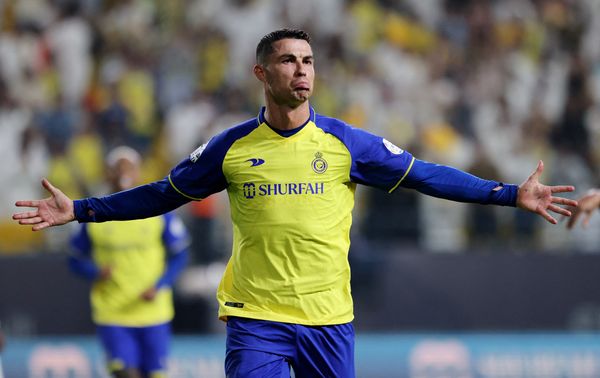
The Asian Football Confederation (AFC) is facing a potential legal challenge after seemingly ignoring its own regulations on multi-club ownership to allow three clubs owned by Saudi Arabia’s Public Investment Fund (PIF) to take part in the Asian Champions League. The Guardian understands that several leading Asian clubs are considering taking legal action against the AFC and its chairman, Sheikh Salman bin Ibrahim al-Khalifa.
The 2023-24 competition is due to begin on Monday, with Al-Hilal, who are the most successful team in the history of the AFC Champions League with four titles and now boast Neymar and the former Fulham striker Aleksandar Mitrovic in their squad, facing Navbahor from Uzbekistan. Cristiano Ronaldo’s Al-Nassr and Karim Benzema’s Al-Ittihad also qualified after PIF announced in June it had secured 75% stakes in all three clubs and Al-Ahli, who were promoted last season from the Saudi second tier.
Similarly to Uefa’s regulations regarding its club competitions, Asian clubs with the same owner are forbidden from entering the Asian Champions League if they have more than a 30% stake based on revenue. The AFC’s club licensing regulations stipulate that owners of one club are prohibited from holding “a majority of the shareholders’ voting rights of any other club participating in the same competition”, while article 16 of the AFC’s statutes also says that nobody can “exercise third-party control in any manner whatsoever over more than one club or group whenever the integrity of any match or competition could be jeopardised”.
At present, prohibitions only apply where there is a “material risk” that this could potentially “jeopardise the integrity of an AFC club competition and/or any match”, with the burden of proof on the participating clubs to demonstrate why they present no such risk.
It is understood that in the case of Manchester City’s owners the City Football Group (CFG), which owns 65% of Mumbai City and all of Melbourne City, that was a straightforward process and that both fully satisfy the relevant rules and requirements to play in this year’s competition given there is only a slim chance of them meeting in a competition that is split into two regional zones.
Yet while Mumbai and Melbourne compete in the West and East zone respectively, all three PIF-owned clubs and the Saudi Pro-league’s fourth representatives, Al-Fayha, play in the West zone so could potentially face each other in the last 16.
The AFC is now facing calls to explain to its members why it has ignored its own regulations, with a potential legal challenge understood to be among the options under discussion by clubs from the eastern region of the confederation. The AFC and PIF did not respond to the Guardian’s request for comment.

Last week, the European Club Association chairman, Nasser al-Khelaifi, said “it is very, very difficult” to envisage Saudi Arabian clubs being invited to join the European Champions League despite executives from its leading sides being reportedly keen to test the proposition. But it is understood that clubs from other parts of Asia suspect that the Saudis may have used the threat of joining the rival competition as a way of exerting more pressure on the AFC, which is heavily reliant on the region for financial support and sponsorship.
In a letter mistakenly forwarded by the AFC last year to all member associations, the Saudi Arabian Football Federation offered to provide the AFC with significant levels of financial support and sponsorship if the 2023 Asian Cup was given to Qatar and Saudi Arabia was awarded the 2027 edition.
A statement from the Korea Football Association later claimed the “unconventional offensive and support of Middle Eastern countries trying to take the lead in Asian football” had influenced the decision to award the 2023 Asian Cup to Qatar in October 2022. “In particular, Saudi Arabia, which has expressed its intention to host the Asian Cup in 2027, also made a promise to provide financial support to AFC in order to overcome the financial difficulties caused by the withdrawal of the Asian Cup in China if the Middle East is decided as the host of the 2023 Asian Cup in the name of Asian football development,” the statement read. “It is judged that these factors greatly influenced the selection of the venue this time.”
According to sources, Khalifa is “now bending over backwards to keep the Saudis happy”, having already agreed last year to change rules on the quota of overseas players allowed to play in the AFC Champions League from three to five. Other Asian clubs and member associations are said to fear for the integrity of the AFC Champions League.
Saudi Arabia – which will host the Club World Cup in December – has lifted its travel ban on its nationals travelling to Iran for the AFC Champions League after seven years of playing matches at neutral destinations. Its clubs are believed to be conscious of the need to give players such as Ronaldo and Benzema an opportunity to compete at the highest level possible in continental and global tournaments.










